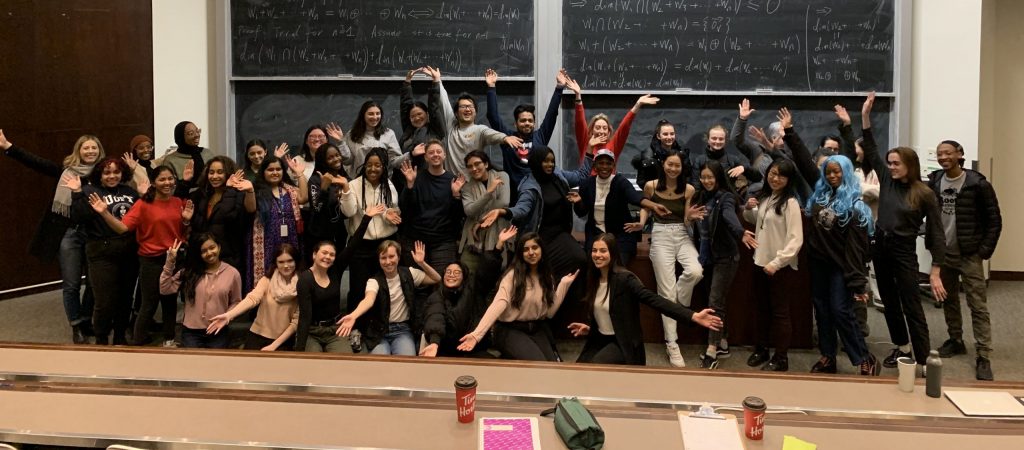
For nearly five decades, we have trained students to think deeply about how gender and sexuality operate at individual, interpersonal, institutional and global levels. We are an interdisciplinary program with faculty expertise across a range of fields, including history and literature, sociology and law, cultural studies and queer theory, and Indigenous, African, Caribbean, Middle Eastern, East Asian, and Equity studies. We enable students to answer urgent and complex questions, such as how militarization can constrict men’s aspirations for their lives, why pay gaps exist, how sexual expression is scripted and can be re-scripted, and even what Lizzo might have in common with Shakespeare. In addition to training students to analyze a music video, a novel, and a government report with equal care and skill, we also focus attention on matters of scale: when to aggregate and when to parse significant distinctions; how to think comparatively across space and time.
Admissions & Degree Requirements
Want to become a WGS major? Check out our admissions and program requirements.
Awards & Scholarships
The WGSI is proud to offer a range of scholarships and awards to our undergraduates. Read more about these opportunities here.
Undergraduate Journal
Generations is an open access interdisciplinary undergraduate journal out of the University of Toronto’s Women & Gender Studies Institute. Click here for more information.
Undergraduate Courses & Timetables
Our courses cover a range of topics across a broad range of disciplines. View our course offerings.
Student Union
The Women and Gender Studies Student Union (WGSSU) supports undergraduate students and hosts both social and academic events. To connect, click here.
The Women & Gender Studies Institute (WGSI) at the University of Toronto is distinctive for its transnational approach. We critically address how national borders and nationalist discourses frame constructions of gender, race, class, indigeneity, sexuality, ability, and other important differences. We study the effects of migration, diaspora, and displacement on experiences of home and heritage, family, desire, and selfhood. We provide students the conceptual tools to connect processes of imperialism and globalization with emergent economies and forms of labour and consumption. Finally, we encourage students to reflect on the varied histories of feminism when framing their own activisms in the present.
Our graduates go on to do innovative work in the public service, creative, and corporate sectors, and some enter the academy. They become everything from documentary filmmakers to grassroots activists to policy analysts in economic development agencies and professors in leading universities. All of them draw on the critical lenses they develop in this program, becoming part of a rich community of graduates who maintain their connections with one another, and who come back to the diverse classrooms where they once were students to share their experiences.

